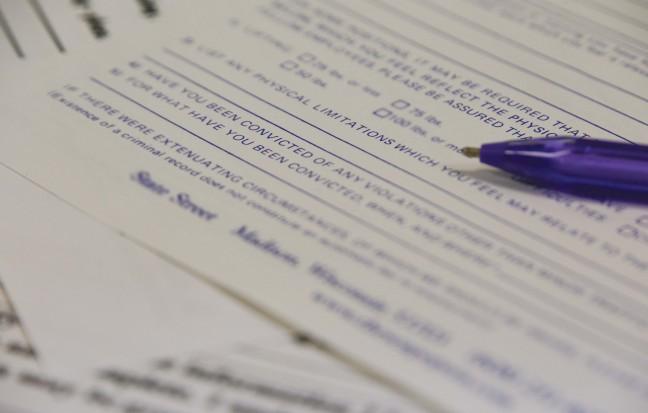September, the U.S. national unemployment rate hit historic lows with a record level of 3.5%. Wisconsin is no exception to this trend. The state’s unemployment rate was actually slightly lower than the national figure, at 3.3%.
Not only do low unemployment rates indicate a strong labor market, with nearly all job seekers able to find some form of employment, but this also means that employers must work harder to attract employees through efforts such as increasing workers’ wages. But while low unemployment is a good thing, Wisconsin residents of color still face stark disparities when it comes to employment, which may be driving University of Wisconsin students and graduates to look elsewhere for internships and jobs.
Low unemployment may sound promising on the state level, but this is not the case for black Wisconsin residents. As of 2015, 11.6% of black residents were unemployed. For those that are employed, median income for black households in Wisconsin is just over $29,000 annually, compared to $58,000 for white households.
In a state with such glaring income disparities across racial lines, it’s evident that the labor market is only strong for some state residents, but not others. With these bleak income statistics in mind, non-white UW undergraduates will likely be driven to look to more equitable states when making their post-graduate plans.
Generally, college graduates tend to flock toward urban areas, regardless of the location of their Alma mater. While almost 90% of college graduates live in urban counties, roughly 60% of these graduates live in large metro areas. This comes as no surprise, as a highly populated metropolis offers more job opportunities for recent graduates. As a result, fewer jobs are created in rural areas with less educated workforces, further driving graduates to urban areas.
When it comes to UW alumni specifically, in-state graduates tend not to leave Wisconsin for work. According to a report conducted by the Office of Policy and Analysis Research, 81% of UW graduates who were considered in-state residents remained in Wisconsin after graduation. In contrast, just 13% of non-Wisconsin or Minnesota residents remained in-state following graduation. Most notably, Madison and Milwaukee have the most Wisconsin alumni out of all top U.S. cities.
Despite the state’s shortcomings when it comes to equitable pay, it’s clear that graduates tend to stay in the state following graduation. While this could be due to the fact that the majority of UW students are from in-state originally, the fact that Madison is a city with plenty of internship and job opportunities for students entices undergraduates during their time here to stay.
Though racial disparities may drive students of color out of Wisconsin once they graduate, students and alumni have clearly benefited from a robust job market in Madison, where undergraduates are the perfect labor supply for local firms and businesses and the nearby Wisconsin State Capitol.
Anne Isman (isman@wisc.edu) is a freshman studying economics.


